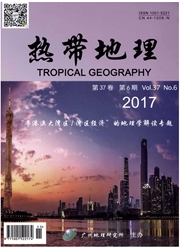

 中文摘要:
中文摘要:
植物护理效应是指护理植物在其自身冠幅下辅助目标植物生长发育的现象。近年来,植物护理效应被应用于世界范围内多数的退化生态系统的修复与重建。文章综述了当前植物护理效应的主流研究内容主要为护理植物的确定、影响其效应的因素、形成其效应的原因与机理以及护理、竞争及胁迫梯度假说,归纳了样方调查、种子萌发实验、幼苗栽植实验等研究方法,总结了其与生态位、系统发育、全球变化等相关生态学概念的关系,指出未来对植物护理效应的研究不应仅仅局限于中观尺度上,在微观尺度上(目标植物对护理效应的生态适应性的激素效应与分子机制)和宏观尺度上(植物护理效应对全球气候变化的响应)也将大有作为,以期将植物护理效应纳入我国主流的生态学研究领域。
 英文摘要:
英文摘要:
Nurse plant effect is the phenomenon that nurse plants facilitate the growth and development of target species beneath their canopies. In recent years nurse plant effect is used to repair and reestablish degraded ecosystems all over the world. This paper reviews the main research contents (including determination of nurse plant, impact factors and mechanism of the effect, and Stress Gradient Hypothesis), methods (including sampling investigation, seed germination, seedling transplantation, et al.) and relevant ecological concepts of nurse plant effect (taking niche, phylogenetic structure, global change, et al.) in order to integrate the research of nurse plant effect into the main-stream of ecology from different scales.
 同期刊论文项目
同期刊论文项目
 同项目期刊论文
同项目期刊论文
 Temporal alterations in interactions between native tree species and a dominant shrub Rhodomyrtus to
Temporal alterations in interactions between native tree species and a dominant shrub Rhodomyrtus to Factors influencing establishment by direct seeding of indigenous tree species in typical plantation
Factors influencing establishment by direct seeding of indigenous tree species in typical plantation Facilitation by Two Exotic Acacia: Acacia auriculiformis and Acacia mangium as Nurse Plants in South
Facilitation by Two Exotic Acacia: Acacia auriculiformis and Acacia mangium as Nurse Plants in South Can perennial dominant grass Miscanthus sinensis be nurse plant in recovery of degraded hilly land l
Can perennial dominant grass Miscanthus sinensis be nurse plant in recovery of degraded hilly land l 期刊信息
期刊信息
